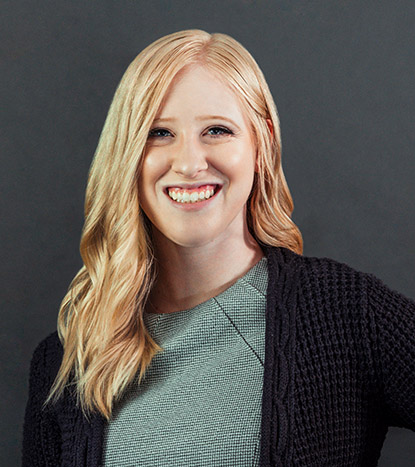Janelle Unger named recipient of Gray Centre 2022 Catalyst Grant
In support of her proposed study, "Evaluation of the perspectives of individuals with chronic neurological conditions regarding existing activity programs at Parkwood Institute", Physical Therapy professor Janelle Unger was recently announced as a recipient of a 2022 Catalyst Grant, from The Gray Centre for Mobility and Activity at Parkwood Institute.

Janelle Unger, PhD
Launched publicly in the fall of 2021, the Gray Centre offers mobility and activity programming to community members living with chronic conditions. One of their main goals is to expand and improve access to these services. Unger and her colleagues will perform a qualitative evaluation of the lived experiences of program participants.
"We have this opportunity for a fresh start, with the launch of the new centre," says Unger. "We should do it properly, by including the perspective of the people involved with previous iterations before we start to develop new programs."
While programming at the centre is evidence and clinic informed, Unger's study also values participants' specific knowledge of what worked and what didn’t in the previous programming, as an important piece of creating the most effective activity programs. Study participants will be consulted on what they enjoyed, what challenges they experienced and what they would like to see changed or added to the programming moving forward.
"Sometimes in healthcare we just continue doing things the way they've always been done, but COVID-19 created a pause, a reset button, and we can take this time to evaluate the best way to move forward."
The group of nearly 50 participants is expected to capture a wide range of disabilities or neuro-impairments, such as spinal cord injuries, stroke, and brain injuries, as well as diverse experiences with the program, from more than five years ago to as recently as two months ago.
Over the past two years of stay-at-home orders for COVID-19, many programs were halted and while some haven't been restarted, a new range of programming came into being with greater online and at-home options for participation.
"This is an ideal time for this project," explains Unger. "Sometimes in healthcare we just continue doing things the way they've always been done, but COVID-19 created a pause, a reset button, and we can take this time to evaluate the best way to move forward."
With a goal of improving current programming as well as access to it, the study will explore how beneficial continuing these options would be to people with barriers to access, such as mobility or financial constraints.
Using data collected from the study, the research team will develop specific recommendations for how to best update and modify current programs and optimally develop future programming and services, while prioritizing greater accessibility, making programming available to those who need it.

